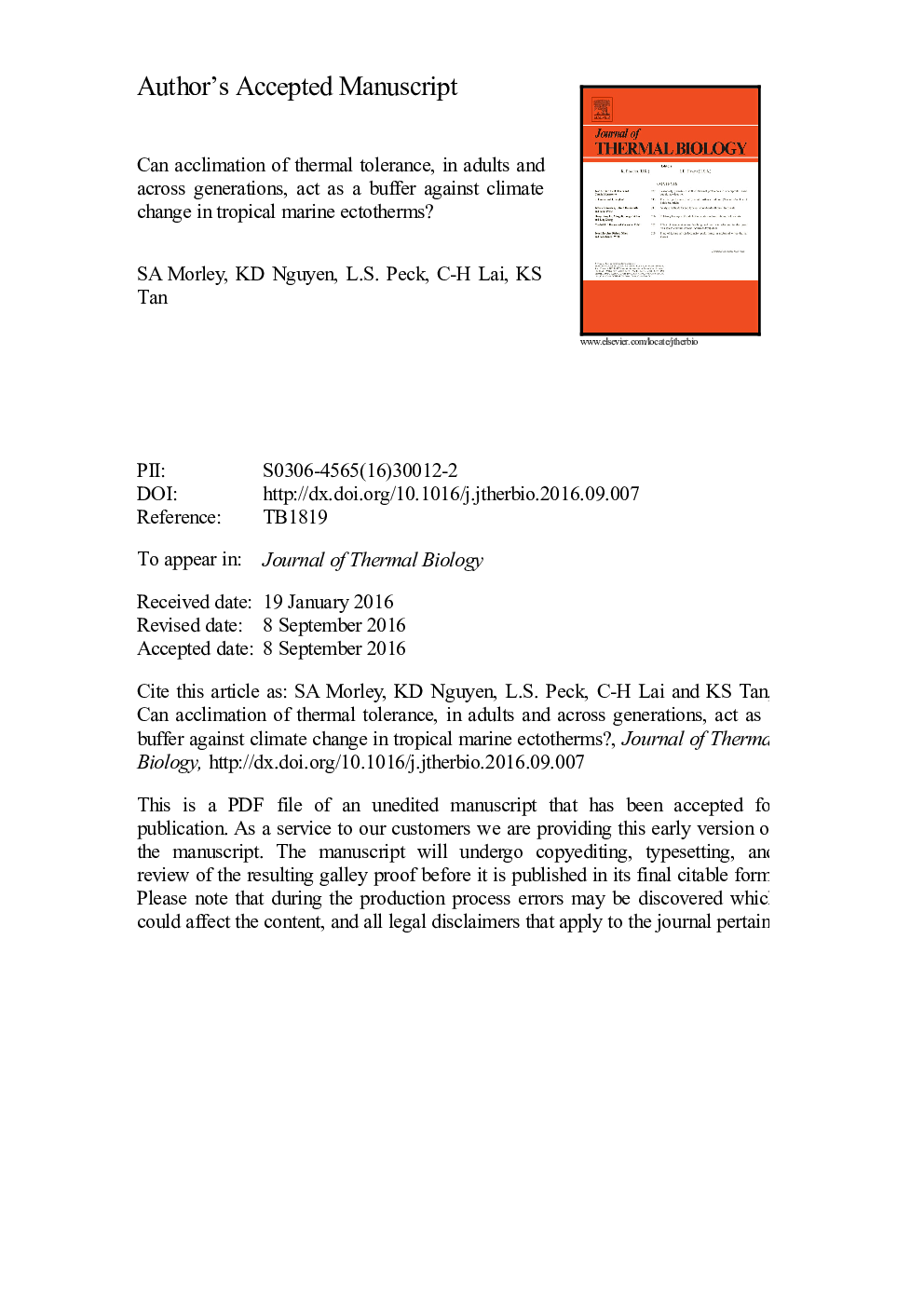| Article ID | Journal | Published Year | Pages | File Type |
|---|---|---|---|---|
| 5593384 | Journal of Thermal Biology | 2017 | 21 Pages |
Abstract
Thermal acclimation capacity was investigated in adults of three tropical marine invertebrates, the subtidal barnacle Striatobalanus amaryllis, the intertidal gastropod Volegalea cochlidium and the intertidal barnacle Amphibalanus amphitrite. To test the relative importance of transgenerational acclimation, the developmental acclimation capacity of A. amphitrite was investigated in F1 and F2 generations reared at a subset of the same incubation temperatures. The increase in CTmax (measured through loss of key behavioural metrics) of F0 adults across the incubation temperature range 25.4-33.4 °C was low: 0.00 °C (V. cochlidium), 0.05 °C (S. amaryllis) and 0.06 °C (A. amphitrite) per 1 °C increase in incubation temperature (the acclimation response ratio; ARR). Although the effect of generation was not significant, across the incubation temperature range of 29.4-33.4 °C, the increase in CTmax in the F1 (0.30 °C) and F2 (0.15 °C) generations of A. amphitrite was greater than in the F0 (0.10 °C). These correspond to ARR's of 0.03 °C (F0), 0.08 °C (F1) and 0.04 °C (F2), respectively. The variability in CTmax between individuals in each treatment was maintained across generations, despite the high mortality of progeny. Further research is required to investigate the potential for transgenerational acclimation to provide an extra buffer for tropical marine species facing climate warming.
Keywords
Related Topics
Life Sciences
Agricultural and Biological Sciences
Agricultural and Biological Sciences (General)
Authors
SA Morley, KD Nguyen, L.S. Peck, C.-H. Lai, KS Tan,
